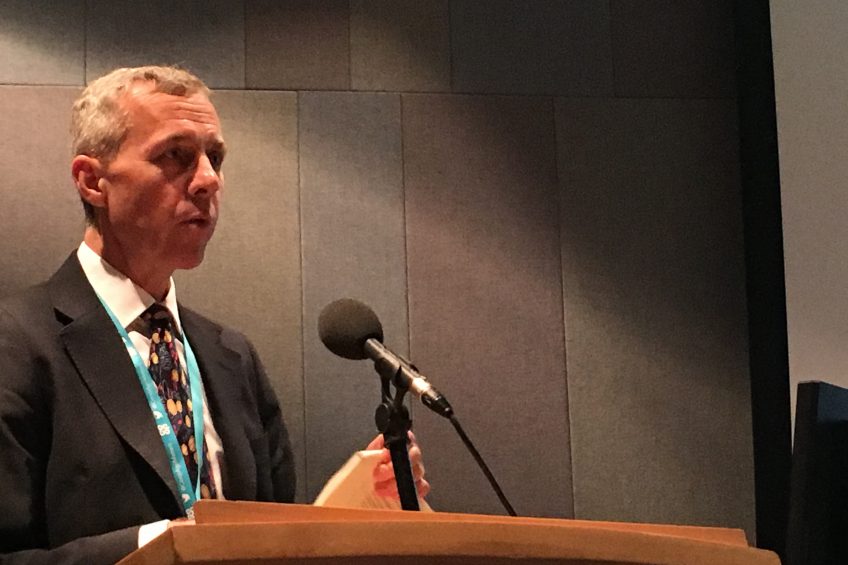A new norm for free-range following avian influenza

It would take a “cluster” of outbreaks or an otherwise significant incursion of avian influenza for Defra to revert to a blanket housing order for poultry, according to Defra’s chief vet Nigel Gibbens.
It would take a ‘cluster’ of outbreaks or otherwise significant incursion of avian influenza for Defra to revert to a blanket housing order, according to Mr Gibbens.
Retails will support free-range egg premium
But with retailers indicating they will support the free-range egg premium, those with the option of releasing birds after 28 February should think carefully about whether to do so.
Don’t invite disease on to your farm
“Some will know that even if they are not in a high-risk area, they will still be high risk,” Mr Gibbens told poultry producers at the recent NFU conference. “Think very hard about what you do next, don’t invite disease on to your farm, It’s not good for the industry, not good for the country and not good for you.”
The government has now confirmed it will proceed with the targeted housing order, enforced only in areas deemed highest risk. Scotland’s government has confirmed it will allow all producers to range birds after 28 February, subject to higher biosecurity and risk assessment.
The importance of biosecurity
In a wide-ranging overview of the H5N8 outbreak that has hit nine commercial poultry farms in the UK, but around 750 across Europe, he praised the biosecurity measures that British farmers had implemented.
“We’re at a high level of threat and have had only nine cases – in every single one, we can point to biosecurity that you wouldn’t recognise as best practice.”
Mr Gibbens said there would be no “business as usual” following this winter, with higher biosecurity becoming a norm for producers, and even suggesting that those in the highest-risk areas might choose not go back to free-range at all.
Defra was taking a risk-based approach in enforcing the housing order only on flocks in the highest-risk areas, he explained. “The loss of free-range status for all producers of free-range eggs is a big loss, and it’s also a big impact on the market – consumers are attached to free-range eggs.
“We are choosing to increase the risk because of the cost of maintaining the current controls.”
Poultry farmer choose not to release birds
One poultry farmer said he would not release birds after February 28, as he felt the risk was too great.
Stuart Agnew, a free-range egg farmer who is Ukip’s agriculture spokesman and an Mep, said he would not let birds out.
“Initially, I was relieved to see that I wasn’t in the high-risk area.
“But then the risk assessment came through from our vet. The first question was, do you see gulls on the range? I couldn’t very well tell porkies on the very first question.
“We have sheep coming on to the range, and fencing water away from the birds would mean fencing it away from the sheep.
He added that he was “surrounded” by other poultry farms. “I feel I have a responsibility to those people.
“I have contacted my packer and told them that I will keep my birds housed. If you look at this assessment, you very quickly conclude that you’re unwise to let your birds out. I hope people will be honest with themselves about this.”
Mr Gibbens described this as “exemplary”.
Trade
As outbreaks progress, confidence in a country’s trade erodes, Mr Gibbens told the NFU’s poultry breakout session.
This is reversed when AI-free status is regained, which is linked to the final outbreak in a country. One issue raised by previous outbreaks was the length and cost of cleaning premises costing the rest of the industry money as it delayed normal trade.
Defra has now said that, if a farm chooses to simply shut down, then it will claim country-free status three months from that date, potentially making the process smoother.













